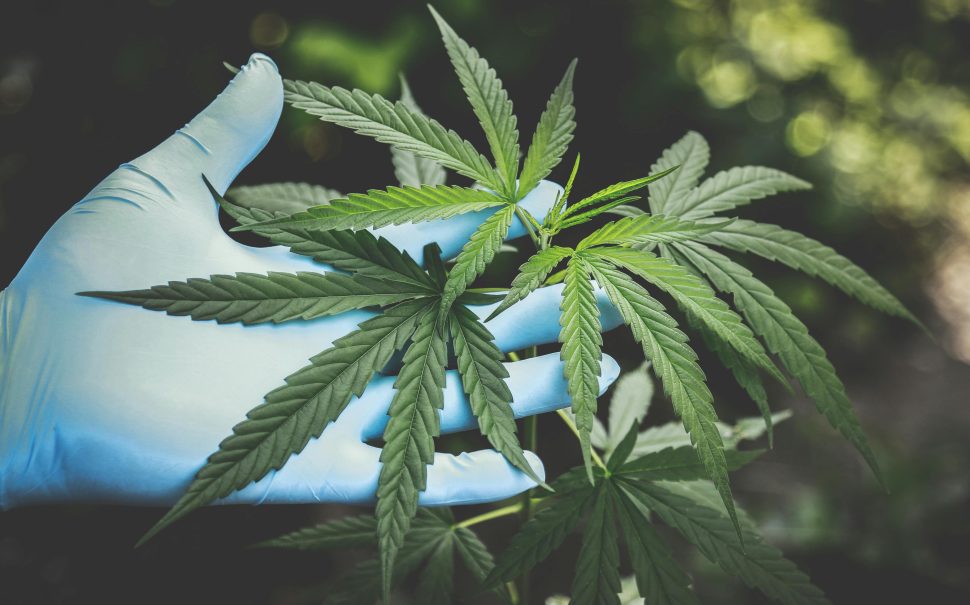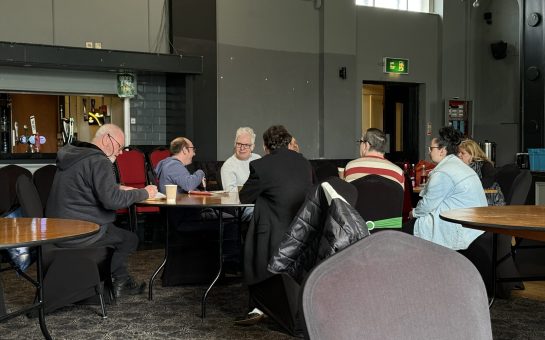Illegal cannabis consumption in the North West has overtaken the national average for the first time in nearly ten years, according to new government figures.
Cannabis consumption in the North West has been lower than the national average since 2016/17.
That rate of consumption increased while other areas saw decreases – now making the North West the country’s second highest consumer of cannabis.
The data was published by the Office for National Statistics, and informed by the Crime Survey for England and Wales. The survey spoke to nearly 15,000 people – including 2,166 from the North West.
An increase in the North West
From 2017/18, illegal cannabis use in the North West was lower than in London, Wales, and the average across England. This remained the case for more than 6 years – until this latest report.
From its mid-table position in the 2010s, the North West now has the second highest consumption of illegal cannabis across England & Wales – second only to the South East.
In 2017/18 6.2% of 16 to 59 year olds in the North West reported use of illicit cannabis in the last year. That number has now risen to 7.6% in 2023/24.
An increase in cannabis consumption in the North West is no surprise to *Hugo, a regular consumer of the drug who’s lived in the region his whole life.
He said: “I now am of the belief that it’s as legal, as easy to acquire, as I found it in Amsterdam.
“In Manchester City Centre, it is probably, out of all the places I’ve been, the easiest place in the world.
“It would be very very rare that someone would even report it as a crime if they walked past people smoking weed in the park or by the canals.”
Hugo moved to Manchester from the Isle of Man in his early twenties, and he was initially nervous to bring up the topic of cannabis to his new colleagues of the same age.
This was until his Manchester coworkers started openly discussing cannabis as an after-work relaxant. Hugo now estimates that 80% of his colleagues are regular users of the drug.
Treatment services in the North West
The consumption of illicit cannabis is a concern for James Parker, Head of Community Services for charity the Forward Trust.
He said: “It’s definitely concerning because I think lots of people that smoke cannabis now aren’t necessarily smoking what they think is cannabis because of the synthetic drugs that are out there.”
Opiates, cocaine, and alcohol are often the focus of adult drug treatment services, but it is youth services that are more likely to be treating those with a chronic dependency on cannabis.
“I think it’s a very difficult group to work with in terms of them wanting to change because I think sometimes people are very, very physically, psychologically dependent upon cannabis, and it can take many years to come off”.
Another area of concern is synthetic cannabinoids, also known as ‘spice’. Parker highlighted that regular cannabis users may be tempted to buy vapes containing THC, one of the key ingredients in cannabis.
But that vape may contain these synthetic materials, which creates a stronger drug with greater toxicity to the human body – something that the buyer may not be aware of.
Raising awareness about drug safety, and providing a route to recovery, is one of the key missions for the Forward Trust.
The charity operates a recovery and rehabilitation service in Liverpool which helps residents to become drug and alcohol free. The service is primarily funded by the Liverpool City Council, and has recently been recommissioned to continue its services for another 5 years at least.
In Liverpool, this recovery journey typically starts with drug users finding their way to The Brink Cafe, Parker explained. This cafe is the charity’s community hub in Merseyside, and acts as the first step in the journey to accessing treatment.
Melissa Rice, who received support from the trust and The Brink Cafe for her alcohol addiction, recently shared an appeal for donations on BBC Radio 4.
Frequency of cannabis consumption
The recent statistics show that 10% of those who’ve consumed cannabis in the past year, consistently take the drug everyday.
This means that there are more people aged 16 to 59 consuming cannabis everyday, than consuming it once per month or once or twice per week.
*Robert, who smoked cannabis everyday during his time at university in the North West, said:
“I don’t think for a second that if you’re smoking every day, it’s a good thing for your body.”
From his personal experience, he said that taking it everyday would lead to side effects such as memory loss, laziness, and difficulty sleeping.
Robert said that with regular use “it’s more comfortable to sit on the sofa and eat snacks than it is to actually go and sort your life out”.
And in periods when regular users don’t have access to cannabis, they will often behave irritably, he added.
The impact of popular media
The most common source of illicit drugs is through friends, neighbours, or colleagues according to the study.
Nearly 50% of respondents said that the immediate source of illicit drugs were these close contacts.
This was what Robert experienced as well, recounting that he first consumed marijuana at a house party with a close friend.
He said: “It’s never a random stranger on the side of the street that comes up to you.”
But he highlighted that it’s often popular media, not close friends, that first set you on the path to illicit drug consumption.
He said: “If your hero consumes cannabis or has consumed cannabis and has spoken about it in a positive way, that’s when the seed is planted in your head.”
*Some of the names in this article have been changed.
Featured image from Pexels.




